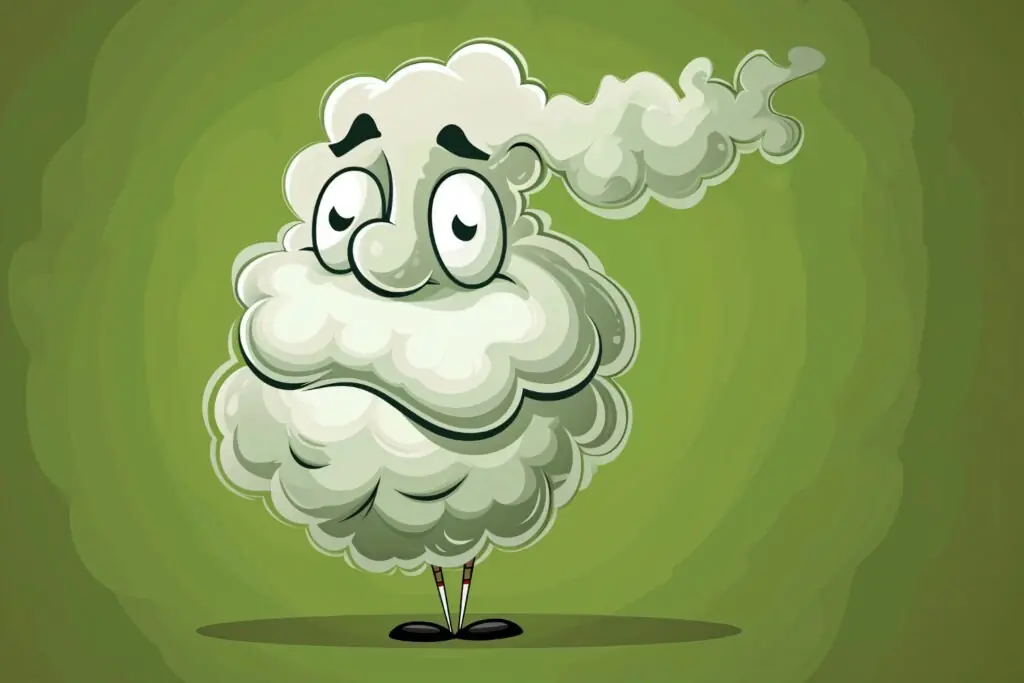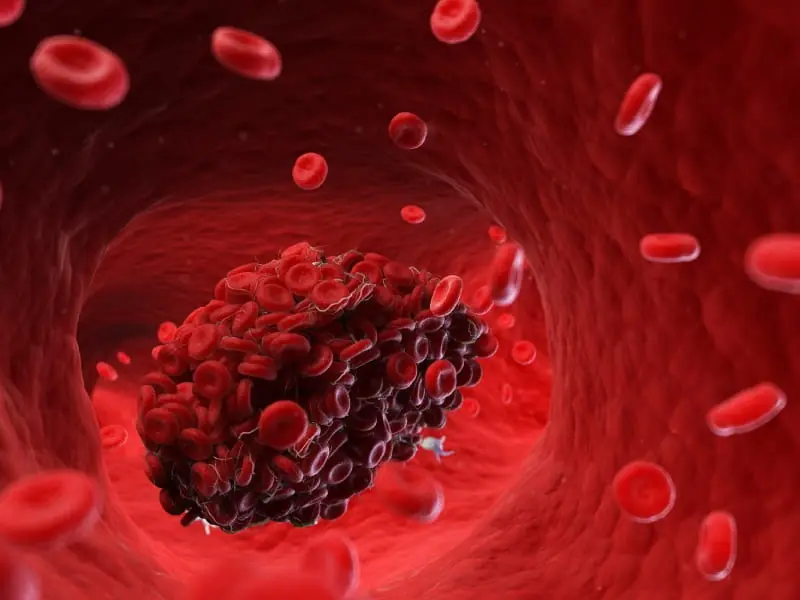
Be Careful If You’re Farting More Than 25 Times a Day—It Might Be a Sign Your Body is Trying to Warn You
While the occasional increase in gas is usually harmless and part of everyday digestion, consistently high levels of flatulence - especially when paired with symptoms like bloating, abdominal discomfort, irregular bowel movements, or a particularly unpleasant odor - may point to deeper underlying issues within your gastrointestinal (GI) tract. Let’s explore what science currently understands about what could be happening inside your digestive system.

1. Gut Dysbiosis: Disruption in the Microbial Ecosystem
Your digestive tract is home to trillions of microorganisms - collectively called the gut microbiome - that play a critical role in digestion, nutrient absorption, and immune function. However, when this delicate ecosystem becomes imbalanced, often due to antibiotics, chronic stress, illness, or a poor diet, certain strains of bacteria can become overrepresented - especially those that produce excessive gas.
According to a 2020 review in Nature Reviews Gastroenterology & Hepatology, gut dysbiosis can trigger increased fermentation of undigested carbohydrates in the colon. This process generates higher levels of hydrogen, methane, and carbon dioxide - leading to excessive flatulence. The overproduction of methane, in particular, has been linked to sluggish gut motility and constipation, making it harder for waste to pass through the intestines efficiently.

2. Small Intestinal Bacterial Overgrowth (SIBO)
SIBO is a condition in which bacteria that normally reside in the large intestine begin populating the small intestine, where they don’t belong. This abnormal migration results in premature fermentation of food, causing a variety of symptoms such as bloating, excessive gas, diarrhea, and even nutrient malabsorption.
A 2017 study published in the World Journal of Gastroenterology highlighted that SIBO remains significantly underdiagnosed, even though it may affect up to 15% of otherwise healthy individuals and as many as 80% of those diagnosed with irritable bowel syndrome (IBS). Left untreated, SIBO can impair quality of life and disrupt the body's ability to absorb essential vitamins like B12.
3. Food Intolerances and Poor Carbohydrate Absorption
Food sensitivities such as lactose intolerance, fructose malabsorption, or gluten sensitivity are some of the most frequent causes of excessive intestinal gas. When the body cannot properly digest these compounds, they remain in the gut where bacteria metabolize them - producing large quantities of gas as a byproduct.
A 2013 study in Neurogastroenterology & Motility found that people with fructose intolerance experienced significantly higher levels of bloating, abdominal pain, and flatulence after consuming common foods like apples, onions, honey, or items sweetened with high-fructose corn syrup. This fermentation process not only causes discomfort but can also promote inflammation in sensitive individuals.

4. Insufficient Digestive Enzyme Production
Digestive enzymes are essential for breaking down proteins, fats, and carbohydrates. As we age - or due to medical conditions such as chronic pancreatitis, celiac disease, or pancreatic insufficiency - the production of enzymes like amylase, lipase, and lactase may decline.
When there are not enough enzymes to properly break down food in the small intestine, undigested food particles travel to the colon, where they ferment and release gas. This can also result in symptoms like steatorrhea - fatty, foul-smelling stools - and persistent bloating after meals.
5. Fiber Overload and Sudden Diet Transitions
Fiber is undoubtedly beneficial for gut health, but increasing your fiber intake too quickly or consuming large quantities of gas-producing foods like beans, lentils, broccoli, and whole grains can overwhelm the gut’s ability to adapt.
A 2011 study in Clinical Gastroenterology and Hepatology found that participants placed on a high-fiber diet experienced significantly more flatulence and discomfort, particularly during the initial weeks of dietary change. Gradual increases in fiber, along with sufficient water intake, can help ease this transition and reduce gas buildup.

6. Gastrointestinal Disorders You Shouldn’t Ignore
In some cases, excessive farting isn’t just a digestive inconvenience - it may be the body’s way of signaling a more serious GI issue:
- Irritable Bowel Syndrome (IBS): Characterized by unpredictable bowel habits, abdominal pain, and hypersensitivity of the gut lining, IBS often includes persistent gas due to altered motility and microbiota imbalances.
- Celiac Disease: This autoimmune disorder is triggered by gluten consumption and leads to damage in the intestinal lining. As a result, gas, bloating, and nutrient malabsorption are common symptoms.
- Inflammatory Bowel Disease (IBD): Including Crohn’s disease and ulcerative colitis, IBD can cause gas due to chronic inflammation, disrupted digestion, and imbalanced gut flora.
When Should You Seek Medical Attention?
While passing gas is a natural part of digestion, certain symptoms alongside persistent flatulence should prompt a visit to a healthcare provider. These red flags include:
- Chronic or severe bloating
- Unexplained weight loss
- Persistent changes in bowel habits (constipation or diarrhea)
- Fatigue or signs of nutrient deficiencies
- A sudden shift in gas frequency or odor
Such symptoms could indicate an underlying condition that warrants medical investigation, such as a breath test for SIBO, stool analysis, or food sensitivity testing.
Understanding What Your Gut Is Trying to Tell You
Passing gas up to 25 times a day can be considered normal - but when you notice a sudden increase, especially if it's paired with discomfort or other symptoms, it's time to tune in. Flatulence can be your body’s way of saying something’s off. Rather than simply blaming your diet or covering it up with room sprays, consider that your gut might be asking for better balance, dietary adjustments, or even professional evaluation.
Ultimately, being in sync with your digestive health means listening not just to your cravings, but also to your symptoms. Because when your gut talks - sometimes loudly - it’s usually worth paying attention.
News in the same category


5 Early Signs of Colon Cancer You Shouldn’t Ignore

Scientists Discover Body’s ‘Kill Switch’ Capable of Destroying Cancer Cells

Native American High Schooler Discovers Cancer-Fighting Properties in Traditional Chokeberry Pudding

The Healing Benefits of Cloves: Natural Remedies for Improved Wellness

13 Warning Signs of High Blood Sugar and 9 Ways to Take Control of Your Health

If You Have These Tiny Red Dots On Your Arm, Do Not Ignore The Warning Signs

The Truth About “Old Person Smell”: What Causes It And How To Get Rid Of It

Scientifically Proven Health Benefits of Lemons (Including Lemon Water)

If you drink cucumber water every morning, this is what happens to your body

If You Notice a Dark Ring Around Your Neck, Go See Your Doctor Immediately! This Is What It Means

Health Food & Nutrition Beauty Aromatherapy Animals

Cardiologists Say This Common Habit Is a Blood Clot Risk

‘Ghost Boy’ Wakes Up From Coma After Being Trapped For 12 Years—What He Heard the Whole Time Will Haunt You

What Staying Up Late Every Night Really Does to You—Massive 24,000 Person Study Reveals the Truth

Horrifying reality of what really happens to your body if you swallow too much gum

Red Spots on Skin: 13 Common Causes

Painful Red Bumps on Skin? It Might Be Dyshidrotic Eczema

How to Remove Dental Plaque Naturally (Evidence Based)
News Post

After 14 Years of Marriage, I Found My Husband’s Second Phone—Then a Message Popped Up, ‘Can’t Wait to See You Again Tonight’

Is the Green Ring on Your Egg Dangerous? Experts Reveal the Truth
If you are one of those people who prefer their eggs hard-boiled, you have certainly noticed that green color ring around the yolk.

10 W@rning Signs It’s Time to Cut Back on Caffeine

5 Early Signs of Colon Cancer You Shouldn’t Ignore

If You Have Cabinets Above Your Fridge, Here’s What They’re Actually For

T3rrifying Moment Killer Orca Approached Viewing Window Holding Dead SeaWorld Trainer

7 Clever DIY Uses for Used Teabags That Will Make You Think Twice Before Tossing Them

How Your Sleep Position Reveals If You’re L@zy

Couple with Down Syndrome Choose to Have Children, Sparking Debate

Scientists Discover Body’s ‘Kill Switch’ Capable of Destroying Cancer Cells

Native American High Schooler Discovers Cancer-Fighting Properties in Traditional Chokeberry Pudding

Saudi Arabia Unveils World's First Date-Based Soft Drink — A New Era for Soft Drinks Begins
Unlike traditional sodas loaded with added sugar and artificial ingredients, Milaf Cola delivers a refreshingly sweet experience using only the natural sugars found in dates.

Orphan took in the three children of a deceased friend. Everyone pointed fingers, but a year later, the unexpected happened.
Orphan took in the three children of a deceased friend. Everyone pointed fingers, but a year later, the unexpected happened. ДЕТИ

World's Oldest Newborn: Baby Born After Being Frozen for 30 Years
The embryo the Pierces adopted was originally created through in vitro fertilization (IVF) back in 1994, making it older than many of today’s prospective parents themselves, according to MIT Technology Review.

— You know, dear, Mom is right. You’re a parasite—go get a job! — Ilya shouted at his stunned wife. Then he slammed the table so hard a spoon at the edge bounced.

You wanted to relax at my expense, but I’m not going to rescue you from there!” — the daughter-in-law taught her husband and mother-in-law a lesson for their greed

— Oh, is that how it is? What I earn is OURS, but what you earn is YOURS? Darling, haven’t you gotten a bit too cheeky?
